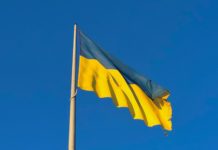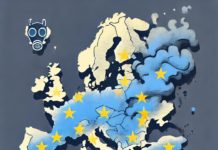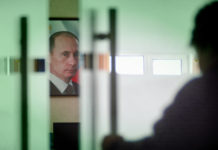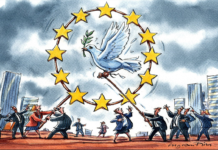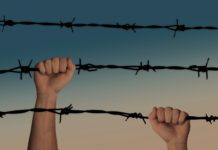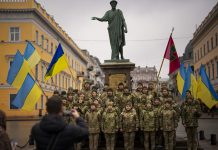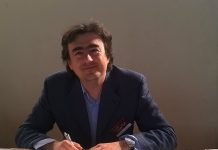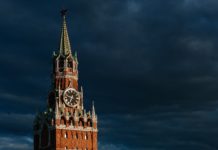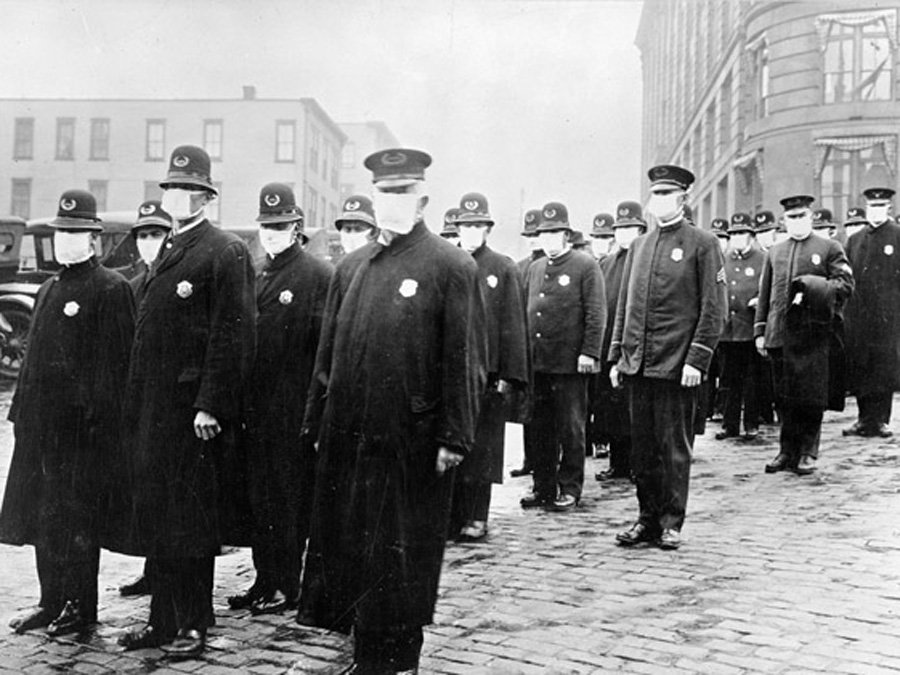
Even though literature is the most fertile ground for alternate history, video games are also a platform where a person can immerse himself into the world of what if. Crimson Skies is a video game released on 17th of September 2000 by Microsoft Studios with Jordan Weisman as Creative Director. It gives the player control over planes that are used for smuggling merchandise over a dystopian United States. The background of the game portrays a post-WWI North America that is being plagued by a regionalist movement with roots in the Prohibition and the Spanish flu outbreak that killed approximately 10% of the world population. These fault lines contributed to the breakup of the United States into regional powers made up from one or more states, expressing particular political, social and religious creeds.
The reason why the core message of the story should hit a cord with the European Union and its promoters is because it outlines the fragility of political unions and federations, large political constructs, even with a contiguous history of over a century up until the post-World War I era, like the United States in the game’s timeline, in the face of black swans, unpredictable and decisive events and developments, in this case, legal polarization and disease outbreaks. Both are particularly dangerous for political cohesion because they are deeply correlated with borders. The enforcement of laws, such as the prohibition of alcohol, and fighting outbreaks are only relevant if a political actor can control borders, external or internal. Once the fight turns to seizing control of the borders, for one reason or another, the chances for political cohesion drop dramatically. This is also proportional to the degree of polarization new ideas for social order determine and to the perceived level of threat a phenomenon outside of the political union poses.
Acts of Men, Acts of God
The Volstead Act, formally known as the National Prohibition Act, which took effect in 1920, is a good example of a political and social disrupter that had the power to shape opinions very fast and well outside the Gaussian bell of the political center. It affected the behavior of a large part of American society and it tied its logical reasoning with fundamental Christian and moral values. It was also a law that needed active enforcement at a national level.
In our timeline, it was enacted through the 18th Constitutional Amendment, with over a two third majority from the states to pass. In the Crimson Skies timeline, Woodrow Wilson did not have sufficient political power to pass the amendment, leaving the matter to the states, thus leading to the emergence of “dry” and “wet” states, and de facto giving away a major issue of influence to the state legislatures. This real life and alternate universe division came on the backdrop of the Great Depression and a heated debate over America’s involvement in Europe’s troubles.
In the Crimson Skies universe, this breakdown coalesced around a “Regionalist party” that was based in isolationism and in the weakening of the federal government in favor of more power to the states. The regionalist movement gained momentum with president G. Harding's ideas, mainly that America must stay away from any wars and divisions across the Atlantic and the Pacific. Having a political party in the Congress meant a world of difference. States gained even more power which prove particularly damaging for the Union in the case of implementing the Prohibition. Enforcing the ban on alcohol unevenly across the nation caused a surge in border crossings and checks, causing tensions between states and further undermined Washington as a central authority.
The decisive blow in this fictional America came in 1927 when a new strain of the Spanish flu started ravaging the country, which in turn caused even more draconian border controls. Security checkpoints became quarantine areas, severely limiting the movement of people and goods. On January 1, 1930, Texas seceded from the United States, becoming The Republic of Texas, setting off a chain reaction that led to similar statements of independence from New York, California or Utah in the following months.
So, an already divided country had fallen prey to a political and social debate that had far reaching implications and gave rise to political voices that fed on fear and anxiety, enhancing the need for borders and isolation, be it from Europe, or from other states that just couldn’t see the moral redemption that came with prohibiting alcohol. Consequently, people who lived on the other side of the border must have been immoral, inherently bad, and thus a threat.

It does sound similar and it brings to mind the Europe of today, in our own timeline. As in the Crimson Skies storyline, an act of man, namely the refugee crisis, is eating away the bloc’s cohesion. The stream of people fleeing conflict from the Middle East is a self-inflicted wound by humanity, not being able to peacefully resolve political issues. As with the case of the Volstead Act, the refugees that poured into Europe opened Pandora’s box on a moral issue: should we, Europeans, act in accordance to the Universal Declaration of Human Rights and basic human decency and shelter the refugees, or reject them based on the immediate threat posed by terrorism and, on the long-term, based on the threat posed by a so-called dilution of Christian values and society, as were the accusations put forth by some Central European leaders?
Naturally, divisions soared and we quickly saw a dissonance between old members such as France, Germany or Holland, and newer members, such as Poland or Hungary. Like in the fictional universe, a central authority, in this case Brussels, tried to enforce the refugee quotas with the threat of punitive measures if the member states do not comply. Of course, the issue of borders, something that was thought to be part of a painful past in Europe, was suddenly in the spotlight, with walls and checkpoints springing up across Hungary and Austria, which in turn caused tensions among member states.
Until now, there hasn’t been an act of God, like in the case of the outbreak of influenza in the alternate universe, something that could tip the balance towards nationalism in this case, but there are international actors, such as Russia, that have a direct strategic interest in undermining the bloc, thus acting as a catalyst for the erosion of common political will across the EU, and even more alarming, as a catalyst for an unfavorable perception of the EU amidst its citizens.
What are the key messages that the leaders of the European Union could decrypt from an old action video game? First and foremost, avoid societal changes that are prone to a moral debate, placing individuals and nations or states into “good” and “bad categories”. Pressuring such changes almost certainly polarizes the population and causes tensions. Furthermore, enforcing these type of changes will trigger a game of chicken, with neither side (a central government and regional players) willing to back down because the first to do so will likely collapse in its capacity to wield influence and power.
Secondly, context matters. The clouds that gathered to form the perfect storm in Crimson Skies were many and diverse: The Great Depression, the relatively recent scars of the Civil War, strong state identities, especially in Texas and California, a global crisis spurred by World War I, outbreaks, secessionist movements and many other. One factor from this list alone could not have brought down the United States as a political construct in the alternate or real world. But a combination of these has set off a chain reaction that resulted into the disappearance of the United States.
Thirdly, much attention must be given to fringe political movements. In the game’s storyline, the regionalist movement found an opportunity to grow in the context of a chaotic internal and external political and social scene, gathering support by using fear as a currency that appreciated quickly on the backdrop of disease and political uncertainty. The only way for the regionalists to gain power was to crumble the federal government. In the same way, the only way parties like UKIP in Great Britain or AfD in Germany can gain influence is by leaking influence from Brussels, apparently channeling it to concepts like national sovereignty, British or German in this case, but in fact benefiting directly as a political organization, trying to go up the ladder of power. This is not a quick process and the political establishments and electorates in Britain and Germany were able to soften the impact of Brexit and to keep UKIP and AfD out of power, but in the long run, this may change.
Finally, the European Union should try to have a sufficiently robust strategy in order to minimize the impact of black swan occurrences. In the fictional universe, the outbreak of a new strain of influenza was beyond the control of authorities, at least within the realm of knowledge at that time, but it had a decisive impact on the course of that counterfactual history. Outbreaks are a reality in our own timeline. The Ebola outbreak in 2014 has showed that we are far from being able to quickly contain the effects of a viral infection anywhere in the world, especially in areas that are plagued by extreme poverty, derelict infrastructure and despotism. In an interconnected world, Europe was practically next door to the outbreak.
Even though, as Jordan Weisman said in an interview, the game’s supervisors “needed to create a geo-political situation that would result in air-pirates”, this tinkering with history helps us to give more substances to our understanding of real life events and phenomena. It also gives us depth in our perspective on how vulnerable social and political systems are to small, unnoticeable changes, especially conjunctions of occurrences, act of men and acts of God, that together can change not only a political elite, but the very fabric of our everyday life.




